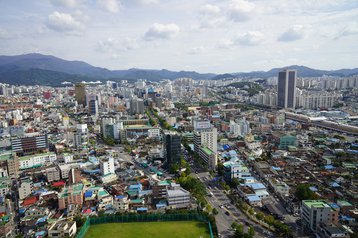The South Korean government has revealed plans to develop two data centers using domestically made artificial intelligence (AI) semiconductors, as well as increasing funding for semiconductor products.
The two facilities will be located in Gwangju and Gyeonggi Province's Pangyo, and will be dedicated to supporting the growth of new industries including urban air mobility (UAM), hydrogen power, self-driving cars, and EV batteries.
Details about these facilities' size and expected timelines have not been shared.
The government is also planning to expand financial support for the development of semiconductor products by fabless companies, on top of the $642 million committed to generative AI chips in February of this year. Fabless companies only design the chips, they do not manufacture them.
UAM's are small aircraft designed for flights within cities and highly populated communities, including Airbus' prototype CityAirbus NextGen. In order to support the development of these vehicles, the South Korean government is also planning to build a communications network, beginning with creating a task force dedicated to finding the ideal frequencies to isolate.
Self-driving cars will be boosted by revamping privacy laws that will allow companies to use videos filmed by automobiles to create a database for training and inference, and is exploring the use of EV batteries as a recyclable resource.
South Korea is home to several major semiconductor companies, including Samsung Electronics and SK Hynix, as well as fabless companies such as Silicon Works and Telechips.
Several significant data center developments are underway in South Korea. Empyrion DC broke ground on a 40MW data center in Gangnam in June 2023, and Digital Edge on a two-building 120MW facility in April.
GIC is also currently fundraising for a $700m project in Goyang City for a data center of unspecified capacity, hoped to be operational by 2026.







